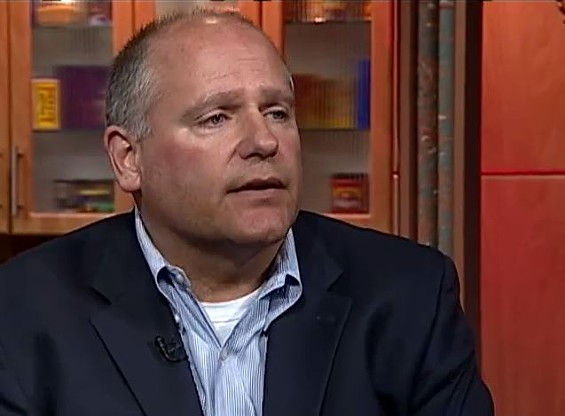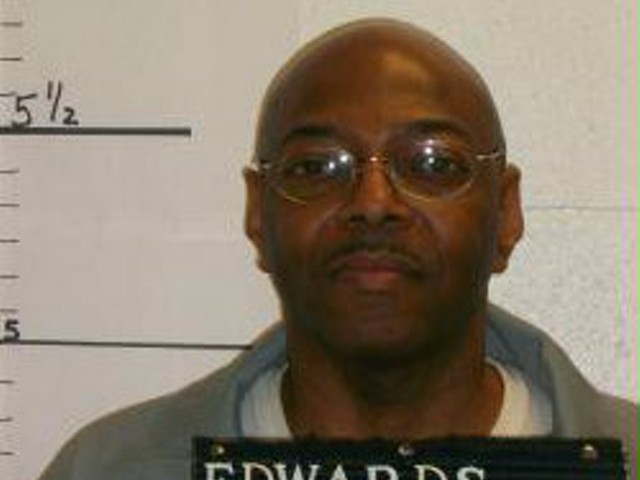
Jay Kanzler was on the campaign trail when he first heard the rumors.
It was the summer of 2002, and Kanzler, a St. Louis lawyer and aspiring filmmaker, had driven the 180-plus miles from St. Louis to the town of Willow Springs, deep in the southern of part of the state. He was chasing the GOP nomination for state auditor, and he liked his chances: He had the full backing of the Missouri Republican Party, and eventually he would attract more than $100,000 to his campaign coffers. Kanzler's only opponent in the primary was a joke, an ornery septuagenarian with a criminal record.
Still, the budding politician needed advice, so Kanzler made the pilgrimage to the home of Wendell Bailey, a fixture of Missouri Republican politics since the '70s who served four terms as state representative and two terms as treasurer. Kanzler remembers how they sat on the front porch of Bailey's home, drinking iced tea and talking shop.
"It was the perfect portrait of politics," Kanzler says. "We were just talking, and I was telling him about myself. At the time, I was pursuing becoming an Episcopal priest, and he said, 'That's funny, I've heard people around here think you're Jewish.'"
Kanzler says he laughed the comment off, and recalls that he and Bailey traded a few ideas on why voters assumed the devoutly Christian Kanzler was Jewish. Maybe it was his name. Maybe it was where Kanzler lived, University City, with its significant Jewish population. Maybe it was because Kanzler was a lawyer?
While it may have seemed funny at the time, Kanzler went on to lose the Republican primary for state auditor by a wide margin. With no money and virtually no campaign, Al Hanson, Kanzler's opponent, took 65 percent of the vote, leaving Kanzler "nearly speechless, party officials mystified and the GOP's U.S. Senate candidate perplexed," reported the Associated Press at the time.
And the loss would impact the state's political future for years to come. Running against an opponent who was both little-known and underfunded, Democrat Claire McCaskill would go on to win the general election for Missouri auditor, launching her statewide political career.
Bailey, now 74 and still living in Willow Springs, says he remembers the 2002 conversation with Kanzler, but only part of it: His memories about the Jewish stuff have drifted away. Still, he thinks such rumors could have been partly to blame for Kanzler's befuddling election loss.
"I come from deep in the Bible Belt, in the south central Missouri Ozarks," Bailey says. "The Jewish whisper campaign would be a definite negative in a lot of our rural society down here."
See also: New Missouri Mayor Totally Understands Why That Kansas City Shooter Hated Jews
"Whisper campaign" is arguably the most loaded term in Missouri politics these days. They were the words Missouri auditor Tom Schweich used when describing what he believed was an anti-Semitic strategy employed among top GOP officials to discredit his campaign for governor. Schweich believed GOP chairman John Hancock was behind the rumor. In late February, Schweich was found dead in his Clayton home from what investigators determined to be a self-inflicted gunshot wound. At Schweich's funeral, former U.S. Senator John Danforth condemned the negative campaign ads that targeted Schweich, declaring during a thunderous eulogy that, "Words do hurt. Words can kill."
Last week, the state's political sphere was sent reeling again when Schweich's spokesman, Spence Jackson, also died of an apparent self-inflicted gunshot wound.
See also: Schweich Spokesman Spence Jackson Dead From Apparent Self-Inflicted Gunshot Wound
In the wake of the suicides, Kanzler is hardly surprised that some are now looking back at his 2002 campaign in a new light.
"What I do take from this is nobody in their right mind would run for office any longer," he says. "Lots of good people aren't willing to put their families through it or themselves through it. That's the real story here."
Kanzler and Schweich worked in the same law firm, Bryan Cave. Both Episcopalians, they attended nearby churches and, of course, both ran for the same state office. But they fought their separate whisper campaigns very differently.
"I dismissed it all, I really did," Kanzler says. "I'm sure there are exceptions to every rule, but I don't believe that voters in the Republican party or the Democratic party are anti-Semitic."
Kanzler recalls there were a few signs that the misconception about his faith had gotten out of hand, but didn't realize how far the false idea had spread until after the brutal primary loss. Colleagues and GOP acquaintances began calling. One prominent Republican donor asked Kanzler if, as a Jewish man, he would be willing to give speeches at Missouri synagogues. Then a dean at Washington University law school who was contemplating a political run called. He asked, "What was it was like to run statewide as a Jewish man?"
"Well," Kanzler remembers saying, "I don't know, but I can tell you what it was like running as a perceived Jewish man."
Some were more overt. A blog run by a white nationalist blowhard wrote, "I sure wouldn't vote for a lawyer or a jew or anyone acting like such or tolerate those who do."
"There were some knuckleheads out there," Kanzler concedes. "They called me 'the fucking Jew lawyer.' Those are the idiots, they're the crazies and I don't lump them in with anyone else."
After losing the primary election in 2002, Kanzler moved into the background of Missouri Republican politics. Aside from a run for University City City Council, he never pursued elected office again. More recently, Kanzler produced and directed several film projects based in Missouri. Notably, he also served as legal representative and spokesman for the Ferguson Market, the store where Michael Brown allegedly stole a box of cigars before his fatal confrontation with then-Ferguson officer Darren Wilson in August 2014. For that he was picked apart in the comments of an utterly insane blog called "Real Jew News."
"I was incredibly naive in 2002," Kanzler recalls. "Voters will ultimately accept you for a hundred different reasons, and how you tap into that involves far more than whether you're a particular religion, or how tall you are, whether you play baseball or went to college or some place."
Follow Danny Wicentowski on Twitter at @D_Towski. E-mail the author at [email protected]





